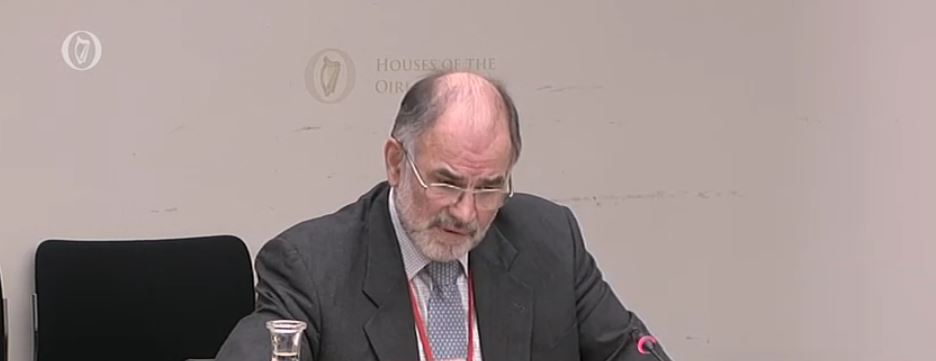The UK’s strategy on Brexit is not good news for the Irish agri-food sector, according to Professor Alan Matthews from the Department of Economics at Trinity College Dublin.
Speaking before the Oireachtas Committee on Agriculture yesterday, Matthews said the announcement by the British Prime Minister that the UK would not be seeking to stay within the customs union was probably the most significant part of her speech.
“Because, essentially, what I think we will see is the UK reverting to a less protectionist position for its agriculture.
“I am not suggesting that it will go to zero tariffs, but I think it is highly unlikely that it will retain the high level of tariffs which we have in Europe,” he said.
Matthews continued to say that even if duty free access was maintained between Ireland and the UK under a free trade agreement, it is going to be a much less valuable market for Ireland in the future.
That is really the biggest difficulty I see for the Irish agri-food sector following from Brexit.
It is important from an Irish point of view, he said, that tariffs are not introduced on Irish exports to the UK market.
“The value of that free trade agreement will depend on the size of the applied tariffs the UK government decide to put in place.
“To take the extreme situation, which I don’t think is likely, if the UK was to decide that it was going to eliminate tariffs on agri-food imports then a free trade agreement doesn’t really mean anything,” he said.
He added that this would also allow countries like Brazil, New Zealand and Australia to have duty free access to the UK market.
“So the free trade agreement is actually that important.
It is important to the extent that the UK retains some positive protections for its own farmers after Brexit.
“I would expect it to do so and therefore the suggestion that the UK would at least look for a free trade agreement is one of the few positive things we can take from [Prime Minister May’s] statement,” he said.
However, Matthews warned that it is going to take time to negotiate a free trade agreement because the withdrawal from the union is negotiated under article 50 of the treaty, but negotiating a free-trade agreement requires further negotiation.
Ireland is also going to see some additional trading costs, he said, because the UK will no longer be part of the European single market, as the British authorities may choose to change the regulations on market access requirements for products such as beef.
“We will need to try and ensure that these additional costs are minimised as far as possible.
“It is possible to do this through mutual recognition agreements, where the two sides agree to recognise each others agencies and systems for approving plants for food safety reasons.
“That is a trade agreement that has to be signed by the Commission for that agreement to take place.” he said.

